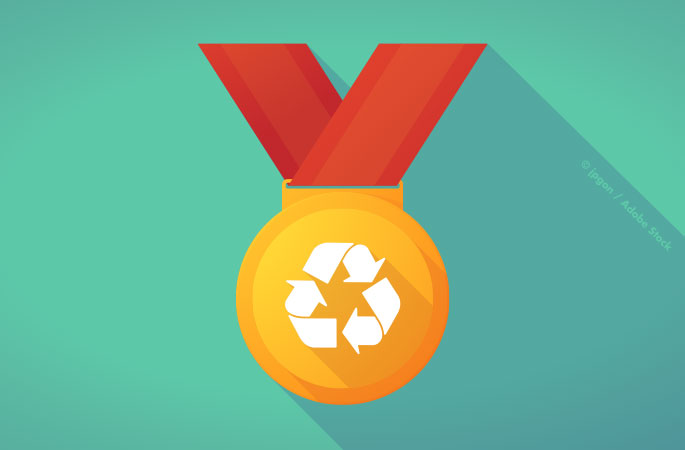
Competitions that encourage work-teams to accomplish great things together, while establishing deeper community ties, is a wonderful way for businesses to engage with their workforce and the community, and to promote business values related to environmental stewardship and social responsibility. Recycling competitions offer a wide variety of possibilities.
#1 Teams
Leadership should decide how teams will form, either informally, through interests, or formally through structured work groups. If one of the goals of the exercise is to promote team-building with existing work units, that structure might be effective for the competition. Allow teams to choose a charity or cause to support with their work.
#2 Community Participation
Consider allowing teams to work with sponsors or partner with community organizations with aligned goals. For instance, if food waste is the target, partnering with a food bank might be a natural extension of the competition. Have a system in place for approval of community contacts or sponsors.
#3 Timing
Attaching the recycling competition to a cultural event or a holiday can provide a natural beginning and end for the competition. The Olympics or Super Bowl, national holidays like Independence Day, or company specific dates like birthdays or anniversaries may provide a structure and timing.
#4 Creativity Gets Points
Scoring a win in a recycling competition should include points for creativity. Changing the items to be recycled, innovative uses of social media, art or music to encourage the competition, involvement of families, and many other creative uses of the competition environment for team-building have been successful. Keeping frequent public track of results is always effective, such as leaderboards, graphs, and letter grades; include both objective and subjective criteria.
#5 Assessment and Audits
Determine the needs of the community and the business itself before beginning the recycling contest. If electronics recycling has become a significant community issue, for instance, consider focusing on that for the competition. If recycled materials form a part of a company product, consider a competition that allows teams to follow material through the recycling chain, and find the best quality/least cost recycled replacement for a currently used product. If community hunger is an issue, focus on innovative ways to divert food waste to organizations working on hunger.
#6 Competition Work Group
A small workgroup can do the planning, structuring, scoring and tracking of a complex competition, and may be filled with either volunteers or the last year’s winning leaders.
Team building through a recycling competition can be an effective way to promote company values of environmental stewardship and social responsibility, and allow a workforce to engage with each other creatively and for the common good.




































































































































 Three Ways to Engage Teams and Clients to Maximize Your Recycling Program Engagement
Three Ways to Engage Teams and Clients to Maximize Your Recycling Program Engagement  How to Integrate Accessibility Into Your Sustainability Planning
How to Integrate Accessibility Into Your Sustainability Planning  Why Park Benches Can Promote Workplace Well-Being
Why Park Benches Can Promote Workplace Well-Being 
